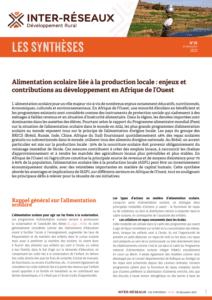Evidence is emerging that foodborne illness accounts for a staggering health burden in developing countries. However, standard approaches used by developed country governments to ensure food safety are not appropriate in settings where regulatory enforcement capacity is weak and most firms are small and informal. Using a randomized field experiment, the authors test the impacts of subsidies and a price premium for safer produce on farmer adoption of technologies that improve food safety. We find that the food safety practices of farmers who produce maize for sale are inferior to those of farmers who produce maize only for household consumption, but that both a price incentive and technology subsidies can partially close this gap. We combine our experimental adoption results with prior evidence on the efficacy of the technologies studied to simulate the public health impacts of alternative policies. Our simulations show that interventions to reduce aflatoxin exposure are likely to be cost-effective based on averted poisoning deaths and cancer cases alone. Potential impacts on stunting, which are not as well established and more difficult to value, would imply additional health benefits. Of the policy options considered, providing training and plastic drying sheets to farmers free of charge is the most cost-effective.







